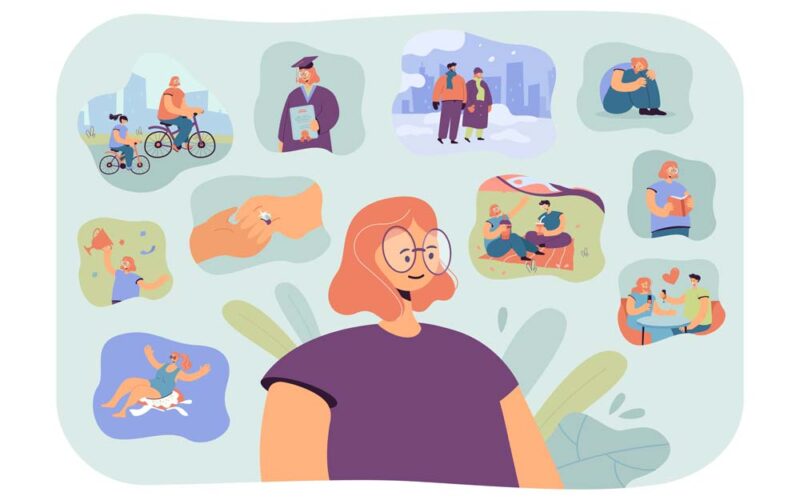“The simplest trick is to pay attention when you’re feeling happy,” Cites Mark (2019, Meik Wikings). Sometimes, we’re so busy enjoying a great experience that we forget to really focus on it. Apparently, attention is an important tool for forming memories, and it is suggested that we should develop an awareness of the experience we want to remember. If you find yourself with one, he suggests: “Try to take a mental snapshot of what’s happening right now to carry around” (Wiking cited in Mark, 2019).
Mark further cites Wiking suggesting implementing this technique to help other people create good memories. One of his readers told him how nice it was to have dinner with her family. What makes it so memorable? The mother paused amid the laughter and said to her two daughters, “I want you to remember that” (Mark, 2019).
According to Wiking (cited in Mark, 2019), reliving an experience can help refresh the memory and prevent it from disappearing. Memory is likened to a muscle by Wiking, so more thinking of the event creates a more lasting memory. Mark mentions Wiking claiming that we shouldn’t be afraid of feeling nostalgia, just keeping good memories in our “ good memory banks.” Apparently, those good memories and recalling them would help us in our not-so-happy days by comforting us and relieving sadness (Wiking is cited saying (Mark, 2019). We use it to deal with depression.” If this is you, look at one of your memory triggers to recall a first kiss or an exciting vacation (Wiking, cited by Mark, 2019).
“Many psychologists think there are evolutionary roots; That is: it’s more important for people to pay attention to the lion in the bush than to the beautiful flower growing on the other side of the road in order to survive,” suggests Carstensen (2019).
One school of thought holds that our attention to negative events has adaptive value, according to Carstensen, who is known for his research on aging. She says there is a lot of information to learn in difficult or dangerous situations that our brains can use when similar situations arise in the future (Carstensen, 2018).
“We’re constantly refining and pruning memories, making some of them disappear, while we bring in others and integrate them into the memory network,” Carstensen said (Caren, 2018).
The person who stares at you as you brush your teeth in the morning unwittingly shapes a memory. According to Carstensen, we shape a memory each time we retell it, and we become more confident in its accuracy because we’ve told it over and over again — often as stories to friends and family. She says memories can affect our goals when something happens, and again when we try to retrieve it.
“Memory is fallible,” she added. “Long-term memory is almost always false.”
REFERENCE:
Mark, C. (2019). How to make and use good memories to be a happier person | CBC Life. CBC. [online] 30 Oct. Available at: https://www.cbc.ca/life/wellness/how-to-make-and-use-good-memories-to-be-a-happier-person-1.5341654 [Accessed 11 May 2022].
Caren, A. (2018). Why we often remember the bad better than the good. [online] Washington Post. Available at: https://www.washingtonpost.com/science/2018/11/01/why-we-often-remember-bad-better-than-good/ [Accessed 11 May 2022].
